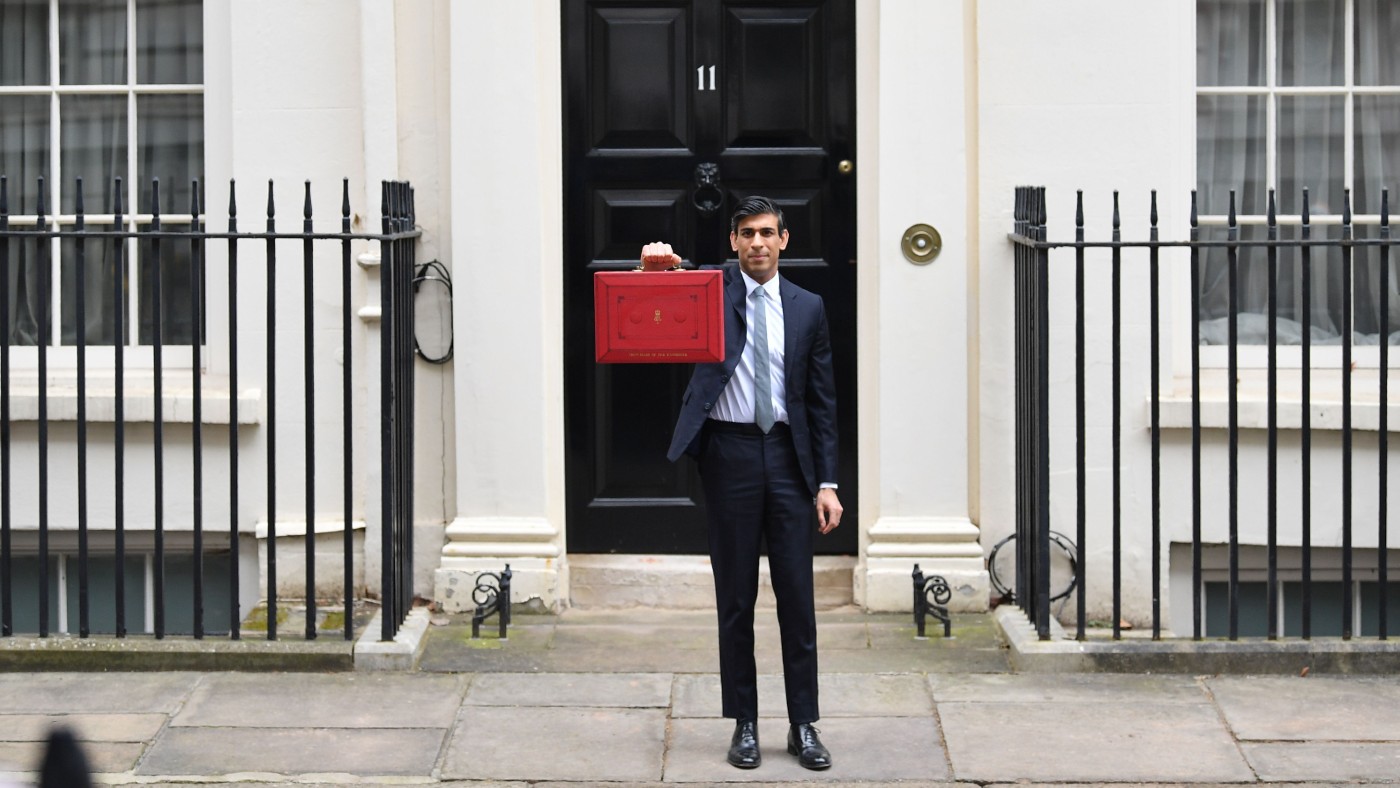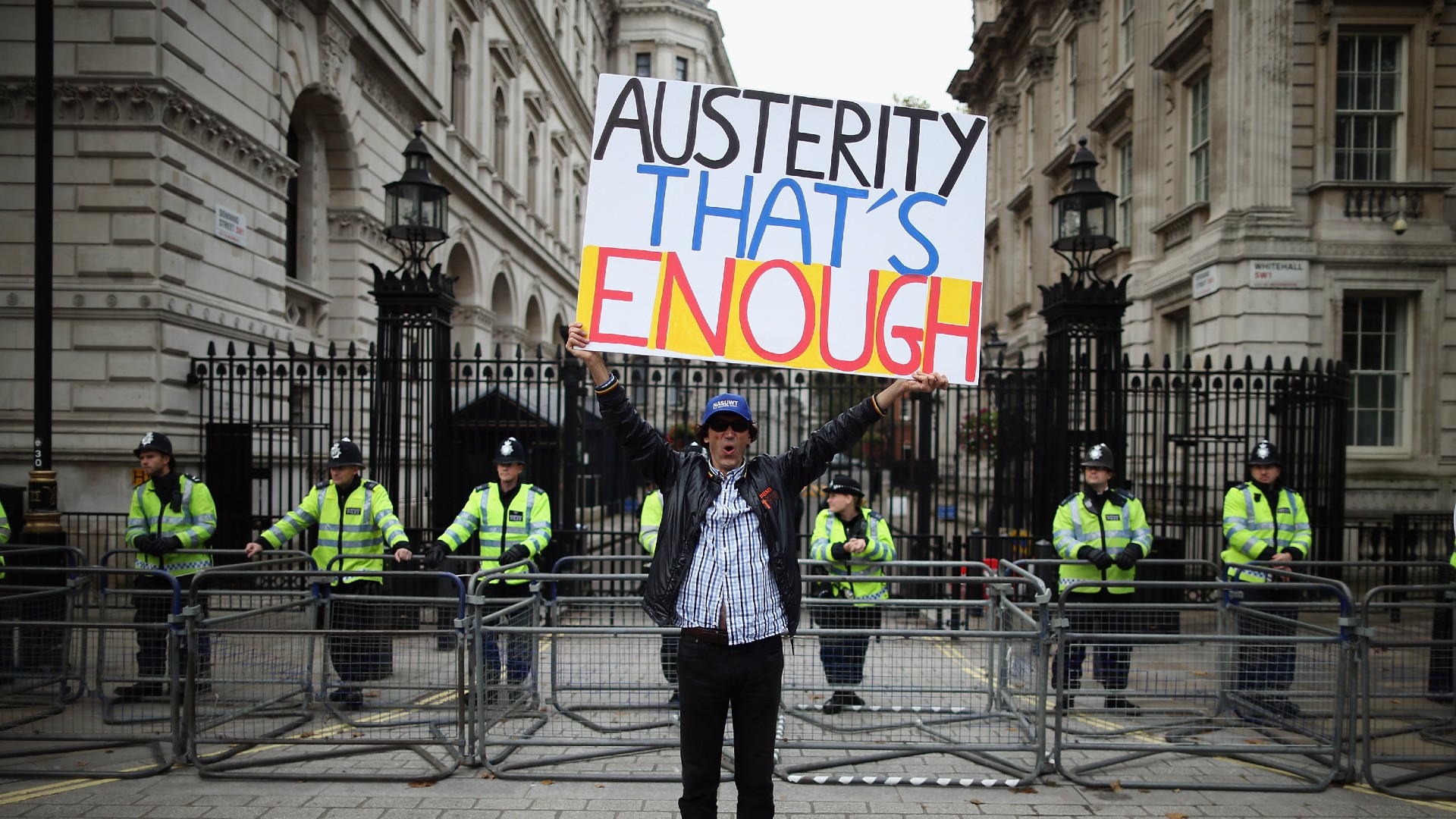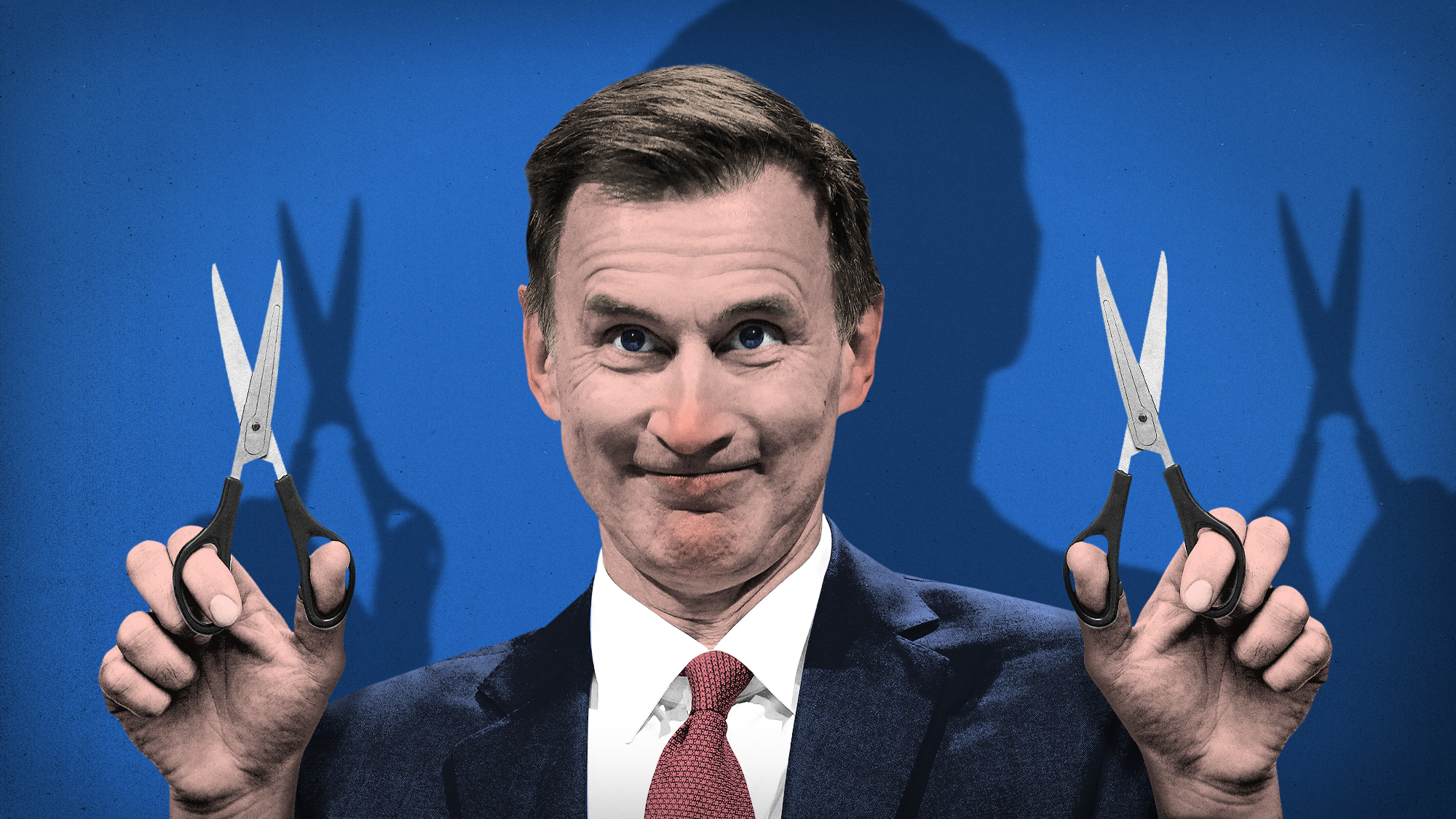In numbers: Rishi Sunak’s spring budget
The key figures in the spending plan outlined by the chancellor today

A free daily email with the biggest news stories of the day – and the best features from TheWeek.com
You are now subscribed
Your newsletter sign-up was successful
Rishi Sunak today pledged to continue supporting workers and businesses through the Covid-19 crisis - but warned that repairing the long-term damage to the economy “will take time”.
Delivering only his second budget as chancellor, after last autumn’s was cancelled owing to the pandemic, Sunak announced extensions to the furlough scheme, self-employed support, business grants, loans and VAT cuts.
The total cost of the UK’s coronavirus response is set to reach £407bn by the end of next year, he told the Commons.
The Week
Escape your echo chamber. Get the facts behind the news, plus analysis from multiple perspectives.

Sign up for The Week's Free Newsletters
From our morning news briefing to a weekly Good News Newsletter, get the best of The Week delivered directly to your inbox.
From our morning news briefing to a weekly Good News Newsletter, get the best of The Week delivered directly to your inbox.
Outlining the details of an extra £65bn in spending, Sunak said: “First, we will continue doing whatever it takes to support the British people and businesses through this moment of crisis. Second, once we are on the way to recovery, we will need to begin fixing the public finances – and I want to be honest today about our plans to do that.
“And third, in today’s budget we begin the work of building our future economy.”
Concluding his speech about what Prime Minister Boris Johnson called a “budget for recovery”, Sunak said that “an important moment is upon us - this is a budget that meets this moment”.
Here the key numbers in the spring budget.
A free daily email with the biggest news stories of the day – and the best features from TheWeek.com
700,000 jobs lost
Sunak revealed that more than 700,000 people have lost their jobs since the start of the coronavirus crisis. And the economy has shrunk by 10% - the “largest fall in more than 300 years”, Metro reports. However, the chancellor insisted that “we will recover”.
Business support bill hits £53bn
The Coronavirus Job Retention Scheme will be extended until September, with workers continuing to be guaranteed 80% of their salary. Companies will be asked to contribute 10% in July and 20% in August and September.
Introduced in March last year, the furlough programme has protected more than 11 million jobs to date, with the total bill for all coronavirus business support schemes now at £53bn.
600,000 can claim SEISS grants
The Treasury confirmed that the Self-Employment Income Support Scheme (SEISS) will continue with a fourth and a fifth grant. More than 600,000 people, many of whom became self-employed in 2019-20, may now be able to claim direct cash grants under SEISS.
£20 Universal Credit uplift
The chancellor said that £126m of new money will pay the way for 40,000 more traineeships. The National Living Wage will also be increased to £8.91 from April, while the £20 per week uplift for Universal Credit will be extended by six months. As planned, the income tax personal allowance and the higher rate threshold will rise next year and then be maintained until April 2026.
Six-month extension on stamp duty holiday
The stamp duty holiday is being extended to the end of September. The property purchase tax has been suspended on the first £500,000 of all sales in England and Northern Ireland since July and was due to end on 31 March. But the tax break will now continue until the end of June, with the nil-rate band then reset to £250,000 until September, before returning to the usual level of £125,000 from the start of October.
A new mortgage guarantee scheme will also enable homebuyers to secure a mortgage up to £600,000 with a 5% deposit.
5% VAT rate for tourism and hospitality
Businesses in the tourism and hospitality sectors will continue to pay a reduced VAT rate of 5% until 30 September, and for six months after that will pay 12% rather than the standard 20% pre-Covid rate. The business rates holiday in England has been also extended by an additional three months from 1 April.
A £5bn recovery grant scheme was announced earlier this week for high-street shops and firms in hospitality.
25% corporation tax
As part of government plans for repaying the Covid response bill, the rate of corporation tax will rise from 19% to 25% starting in 2023. Sunak told the Commons that “the government is providing business with over £100bn of support to get through this pandemic, so it is fair and necessary to ask them to contribute to our recovery”.
Mike Starling is the former digital features editor at The Week. He started his career in 2001 in Gloucestershire as a sports reporter and sub-editor and has held various roles as a writer and editor at news, travel and B2B publications. He has spoken at a number of sports business conferences and also worked as a consultant creating sports travel content for tourism boards. International experience includes spells living and working in Dubai, UAE; Brisbane, Australia; and Beirut, Lebanon.
-
 6 of the world’s most accessible destinations
6 of the world’s most accessible destinationsThe Week Recommends Experience all of Berlin, Singapore and Sydney
-
 How the FCC’s ‘equal time’ rule works
How the FCC’s ‘equal time’ rule worksIn the Spotlight The law is at the heart of the Colbert-CBS conflict
-
 What is the endgame in the DHS shutdown?
What is the endgame in the DHS shutdown?Today’s Big Question Democrats want to rein in ICE’s immigration crackdown
-
 Is the UK headed for recession?
Is the UK headed for recession?Today’s Big Question Sluggish growth and rising unemployment are ringing alarm bells for economists
-
 Should Labour break manifesto pledge and raise taxes?
Should Labour break manifesto pledge and raise taxes?Today's Big Question There are ‘powerful’ fiscal arguments for an income tax rise but it could mean ‘game over’ for the government
-
 Will Rachel Reeves have to raise taxes again?
Will Rachel Reeves have to raise taxes again?Today's Big Question Rising gilt yields and higher debt interest sound warning that Chancellor may miss her Budget borrowing targets
-
 Is the UK economy returning to normal?
Is the UK economy returning to normal?Today's Big Question Tories claim UK has 'turned a corner' while Labour accuses government of 'gaslighting' public
-
 Securonomics: what is Rachel Reeves' economic plan and will it work?
Securonomics: what is Rachel Reeves' economic plan and will it work?The Explainer Focus on economic security and the resilience of industry in an uncertain world is 'key to growth', say Labour
-
 New austerity: can public services take any more cuts?
New austerity: can public services take any more cuts?Today's Big Question Some government departments already 'in last chance saloon', say unions, as Conservative tax-cutting plans 'hang in the balance'
-
 Five key takeaways from Jeremy Hunt's Autumn Statement
Five key takeaways from Jeremy Hunt's Autumn StatementThe Explainer Benefits rise with higher inflation figure, pension triple lock maintained and National Insurance cut
-
 Would tax cuts benefit the UK economy?
Would tax cuts benefit the UK economy?Today's Big Question More money in people's pockets may help the Tories politically, but could harm efforts to keep inflation falling